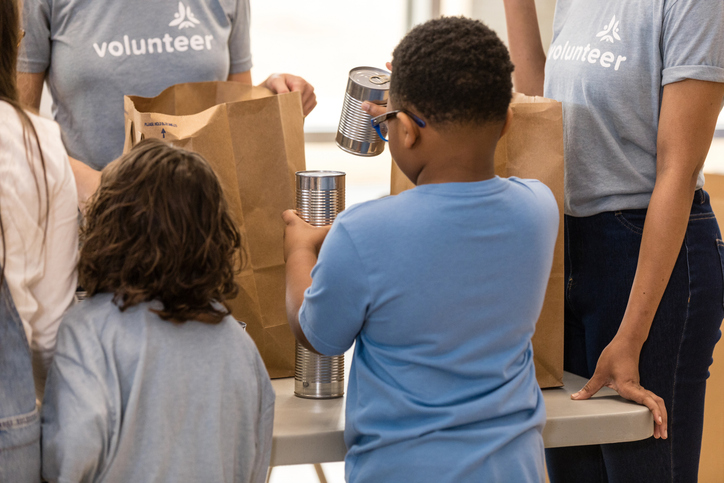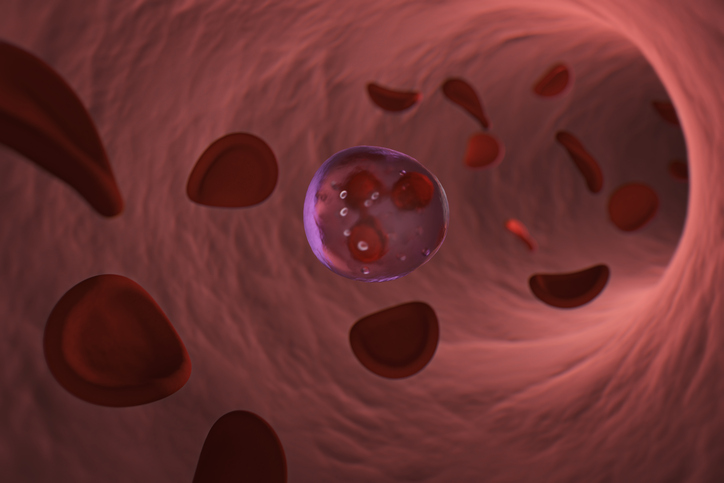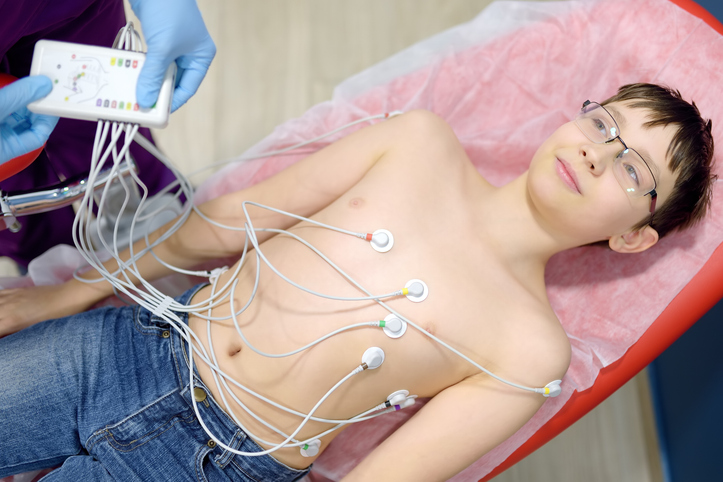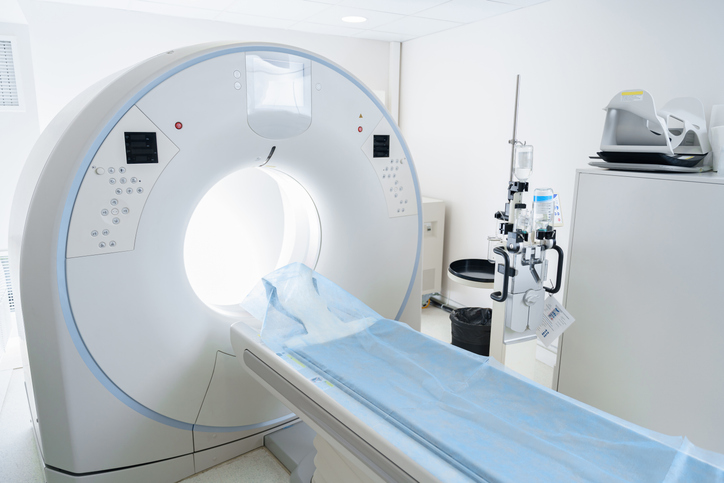Drs. Suzanne Baron & Sohan Iqbal Discuss Women's Heart Health
By Rob Dillard - Last Updated: April 16, 2025Despite the fact that heart disease is the leading killer of women in the U.S., women remain underrepresented in heart trials and cardiac procedures. DocWire News Editorial Board member Suzanne J. Baron, MD, MSc, Director of Interventional Cardiology Research at Lahey Hospital and Medical Center, spoke with Sohah N. Iqbal, MD, Chief of Cardiology at Salem Hospital in Massachusetts, about these issues and other topics pertaining to women’s heart health.
Dr. Suzanne Baron: Well, I want to welcome Dr. Sohah Iqbal to DocWire. She’s going to be chatting with us today about women’s heart health. Dr. Iqbal is the chief of cardiology at Salem Hospital. She joined the team at Mass General Brigham as an interventional cardiologist at Salem and Mass General Hospital in May of 2020 after receiving her MD at Harvard Medical School and completing her internal medicine residency at Columbia in New York. She then completed training in cardiology and interventional cardiology at NYU Langone Medical Center and stayed on faculty there for over a decade before she made the move back to the Boston area. At NYU, she held the positions of assistant professor of medicine, associate director of cardiac cath lab at Bellevue Hospital. She’s active in many national societies and currently holds leadership roles in the American College of Cardiology and the Society of Cardiovascular Angiography and Interventions currently as a committee chair for the Women in Innovations mentoring committee. So we are thrilled to have you here and personally, since I know you both as a person and as a clinician, I’m thrilled that you’re here chatting with us today. So thank you.
Dr. Sohah Iqbal: Thank you so much for having me.
Dr. Suzanne Baron: Awesome. So, just to kind of start off, I think one of the things that’s always gotten to me is that despite the fact that cardiovascular disease is the leading cause of death for women in the United States, studies have consistently shown that utilization of cardiac procedures are far higher in men than compared with women and that’s independent of disease prevalence or severity. So in your practice, your experience, vast experience, have you observed this?
Dr. Sohah Iqbal: So I had that question pretty early on and actually was able to look through the NCDR data in about 2017. And we looked at specifically the STEMI population that women and men coming in with MIs and we saw even up until about 2017, there was a delay in care for women coming in with heart attacks. And I just needed to know those numbers and get that out there because I think with that knowledge we’ll be able to get out, we can work on making that better. So, yes, I think that there’s so many factors that go into why there’s delay of care. And as you asked, less procedures being done in women maybe not in the acute setting, but even in kind of stable settings.
Dr. Sohah Iqbal: I think a lot of it has to do with how they present. I don’t know if you ever heard this Suzanne, I was taught that the reason people say heart attacks are presented with chest pain was it’s based on the Framingham data, right here in Massachusetts where we both are, that was all men and that was a long time ago. And that was how people decided chest pain equaled heart attacks. So, I think we’ve kind of done ourselves a disservice and we’re working backwards on that way to make sure our patients understand that’s not how all people present classically. And then we have to do well in our medical communities for people to understand that.
Dr. Suzanne Baron: I think that even brings into something that is also a known issue which is that women are chronically underrepresented in cardiac device trials. What ends up resulting from that is exactly what you just said, which is that we have understanding of a disease processes that are really derived so much from our male patients. And that can lead to not understanding how well treatments are effective for women or as well as how different disease processes can present. Certainly, I know that there’s some female predominant cardiac conditions that I feel like we’re just really starting to think more and more about over the last few years that are really kind of coming up. What’s your experience been with some of these conditions?
Dr. Sohah Iqbal: So, I feel really privileged that I was kind of introduced to this very early on in my training over 15 years ago with Dr. Harmony Reynolds. And she and I partnered together with looking at women who came in with heart attacks. And the way I said is, “Looks like a heart attack, smelled like a heart attack,” and they would have angiographically normal coronaries. And I just remember one of my male interventional attendings telling a woman like, “Oh, you’re fine.” And I’m like, “Wait, what do you mean she’s fine? It sounds like a heart attack. What are we missing?” So I was still super excited to do that research a while ago, which has really come a long way since then. But we looked at intravascular ultrasounds on these women and realized we were missing diagnoses in that 15 years ago, including plaque rupture that wasn’t causing obstructive disease, as well as SCAD, which is spontaneous coronary artery dissection. I think that we really started that a few decades ago and it’s come a long way and we’re realizing we’re under diagnosing that. And also then, if we underdiagnose it we can’t tell our patients what happened to them and then we can’t help them take action as well as our colleagues taking care of them, how to medically treat them. So, I think this is all very important.
Dr. Suzanne Baron: I absolutely agree. I think it’s one of the things certainly I’ve seen in my practice that the more that there’s been more understanding about these sorts of conditions, things like MINOCA or SCAD, Takotsubo, that I feel like we’re seeing them more and more. And the reality is I don’t think that they’re necessarily occurring a whole lot more. I think we’re just recognizing that they’re there. So exactly to your point where we’ve got patients, we’re saying, “Oh, you’re fine.” No, it’s just that we’re not actually recognizing what’s going on. And I think that’s a really important thing that I think falls on us as a medical community to not only educate our patients about different conditions, different presentations, but also our fellow providers as well.
Dr. Sohah Iqbal: Right. And there’s just knowledge gaps still in what we know. So, it’s really important that we continue to do research in that and kind of delve a little bit deeper.
Dr. Suzanne Baron: I absolutely agree. And one of the things I think and one of the things I kind of brought up before is that since women are underrepresented in clinical trials, how can we address that? How can we get women to enroll more in clinical trials, our female patients and what can we do to kind of improve participation and improve essentially representation in the clinical trials so we can understand these disease processes better? Do you have any thoughts, any ideas about what we can do?
Dr. Sohah Iqbal: If I could get my patients to go to cardiac rehab, my female patients, I’d feel like I’m winning something here. But hearing, but knowing that about my patients, knowing that they’ll minimize, they’ll wait at home because they will have to take care of something before they come in with their symptoms, knowing that they’ll tell me that they’re going to put themselves first and not their families and try to get to cardiac rehab and then seeing them come in and not having the time for it, it makes me really realize why we’re not seeing women in trials. So things that I have kind of encouraged my colleagues in Mass General, who I partner with in a lot of studies is you can’t have your research studies main discussion be it 6:00 PM on Zoom. Yes, it’s on Zoom, but 6:00 PM may be when their children are, or when they’re making dinner. I think realizing what our female patients are doing kind of really at the nuts and bolts level at home will really help us tailor our research to help them feel like they can participate. I think that’s really important.
Dr. Suzanne Baron: I think that makes a really good point about really taking medicine out, per se, of the hospital and bringing it to the patient and the patient’s doorstep. And I think that is going to be some ways that we can understand the communities that we’re treating and in doing that, be able to really improve the representation because it isn’t just women obviously, it’s also underserved minorities as well, that are underrepresented in these trials. And understanding what are the cultural differences? What are the social barriers and what can we do to make it better? And it can be things like this is when this isn’t a good time for a woman to be part of a trial because she’s picking her kids up from school or this isn’t a good time for X person to be part of this trial because they’re getting off the late shift from work. And I think being really kind of sensitive and thoughtful on those sorts of things that are very, very tangible and important things to our patients, hopefully will help improve some of the representation as well.
Dr. Suzanne Baron: Speaking of representation. And I know you and I can feel this both very much. Interventional cardiology is a predominantly male field, 5% of women, 5% of interventional cardiologists are women. So there’s two of us on this call right now, which I think is amazingly awesome. But, as we think about trying to increase and improve the pipeline and getting more female representation into the interventional cardiology community, what’s your experience as a woman, as an interventional cardiologist been like, and do you have any thoughts about how we can improve female representation in the field itself?
Dr. Sohah Iqbal: Yeah, so I feel it’s really exciting to see more and more women in this field, even in the last 15 years since I’ve kind of worked my way into the field. I think I just loved it so I kind of put my head down and powered through. And now, just now reflecting on the things that we could have done, we can do differently. And I focus on the fact that we, as a community just need to not discourage women. And people don’t realize that they’re doing that, but if a woman suggests that they’re interested in cardiology or interventional cardiology, kind of leaving the questions of when are you going to have a family if you’re training for so long? Or the comments about like, “Oh, well, your husband’s going to miss you,” or something like that. I think that discouragement, it may just be comments, but I have seen a lot of women get turned away, turned off, I guess, from potentially doing interventional cardiology.
Dr. Sohah Iqbal: Luckily, we have programs such that you and I are part of, mentorship committees that we can show, we can kind of pull a lot of these women back and say, “No. Actually, these are the questions that you may have that we can answer in terms of lifestyle, in terms of training, in terms of what your day-to-day life could be.” So I think that’s the number one thing honestly, is we should encourage women, but on top of that, we need to have our community members not discourage women. I think that’s number one on my end. Thoughts on your end?
Dr. Suzanne Baron: I think that. I mean, I think that’s great. Encourage and not discourage. And I think having, I think it’s really does, not to use the Twitter hashtag, HeForShea, because I hate using Twitter hashtags, but I think that’s really important to think of this is not just a female issue, this is a community issue. This is an interventional cardiology issue as well. And so like you said, let’s not have any discouraging comments, let’s be encouraging. And certainly, and I don’t want to speak for you, I was lucky enough to have my male attending who encouraged me to go into interventional. And I was the one saying, “I don’t think I can, I should do it. I’m not really sure. It’s a long training process, all the radiation.” And he sat me down and was like, “No, you can do this. We need you in the field.”
Dr. Suzanne Baron: And it is, how really I’m grateful every day. Grateful every day for that sort of support. And so hoping that kind of the rest of the community can, when they see that eager young female fellow can say, “Hey, we need you. We need you. We need you in here.” Because I do think having better representation in our community, in the interventional community will help trickle down to better care for our female patients. Better representation of our female patients and clinical trials, better understanding of these female predominant cardiac conditions, which again, will translate to better cardiac care.
Dr. Sohah Iqbal: Oh, absolutely. And we know as medical field, it’s good to have diversity within the field so that we can take care of our diverse population. So I think that the more women we can get, the more diversity we can get, the stronger we will be as a field, everyone will be better off on that.
Dr. Suzanne Baron: Completely agree. Well, Dr. Iqbal, I really want to thank you for taking the time to chat with us tonight and hope to see you soon.
Dr. Sohah Iqbal: Great. Thanks so much. This was fun.







 © 2025 Mashup Media, LLC, a Formedics Property. All Rights Reserved.
© 2025 Mashup Media, LLC, a Formedics Property. All Rights Reserved.